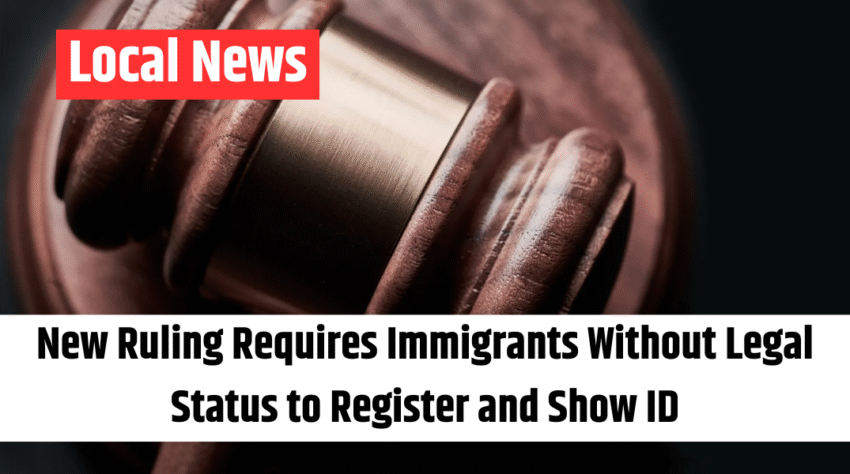WASHINGTON — Starting Friday, millions of immigrants living in the U.S. without legal authorization must register with the Department of Homeland Security (DHS) and carry proof of registration at all times, following a court ruling that rejected an attempt to block the mandate.
On Thursday, U.S. District Judge Trevor Neil McFadden in Washington, D.C., denied a motion filed by immigration advocacy groups seeking to halt the enforcement of the rule. McFadden, a 2017 Trump appointee, ruled the plaintiffs lacked legal standing to challenge the rule, stating that the organizations had not demonstrated concrete harm.
“Many of their alleged injuries are speculative,” McFadden wrote, adding that the new rule does not appear to interfere with the groups’ core missions.
DHS Secretary Kristi Noem praised the court’s decision, saying the administration intends to send a clear message.
“If you are in this country illegally, it’s time to go,” Noem stated. “Leave now, and you may be eligible to return legally and live the American dream.”
Also Read – West Virginia Lawmaker Draws Criticism for Thumbs Up at El Salvador Prison with U.S. Deportees
Millions Could Be Affected
The nonpartisan Migration Policy Institute estimates that between 2.2 million and 3.2 million undocumented immigrants could be impacted by the rule, which DHS originally announced in February. The policy requires immigrants 14 years and older to provide personal and biometric information, such as fingerprints, through an online system managed by U.S. Citizenship and Immigration Services.
Upon approval, registrants will receive documentation that they must carry with them at all times. Failing to comply could result in up to $5,000 in fines or possible jail time.
Advocates Warn of Discrimination
The lawsuit, brought by immigration rights organizations, argued that the federal government sidestepped proper administrative procedures in rolling out the new application process. The groups also expressed concern that the program could lead to racial profiling and even accidental targeting of U.S. citizens.
The registration mandate is grounded in the Alien Registration Act of 1940, a wartime law initially enforced during World War II. Though largely dormant for decades, it was revived briefly after the September 11 attacks through the National Security Entry-Exit Registration System, which required noncitizen males from predominantly Muslim countries to register. That program ended in 2016 after failing to produce terrorism-related convictions.
Who Must Register?
The updated rule affects immigrants who entered the U.S. without authorization, along with Canadian nationals staying in the country for over 30 days. Those exempt from the requirement include lawful permanent residents, individuals with valid work or select visa types, and those already in removal proceedings.
Though the full impact of the rule remains to be seen, immigrant advocacy groups warn it could intensify enforcement efforts and stoke fear among immigrant communities.
